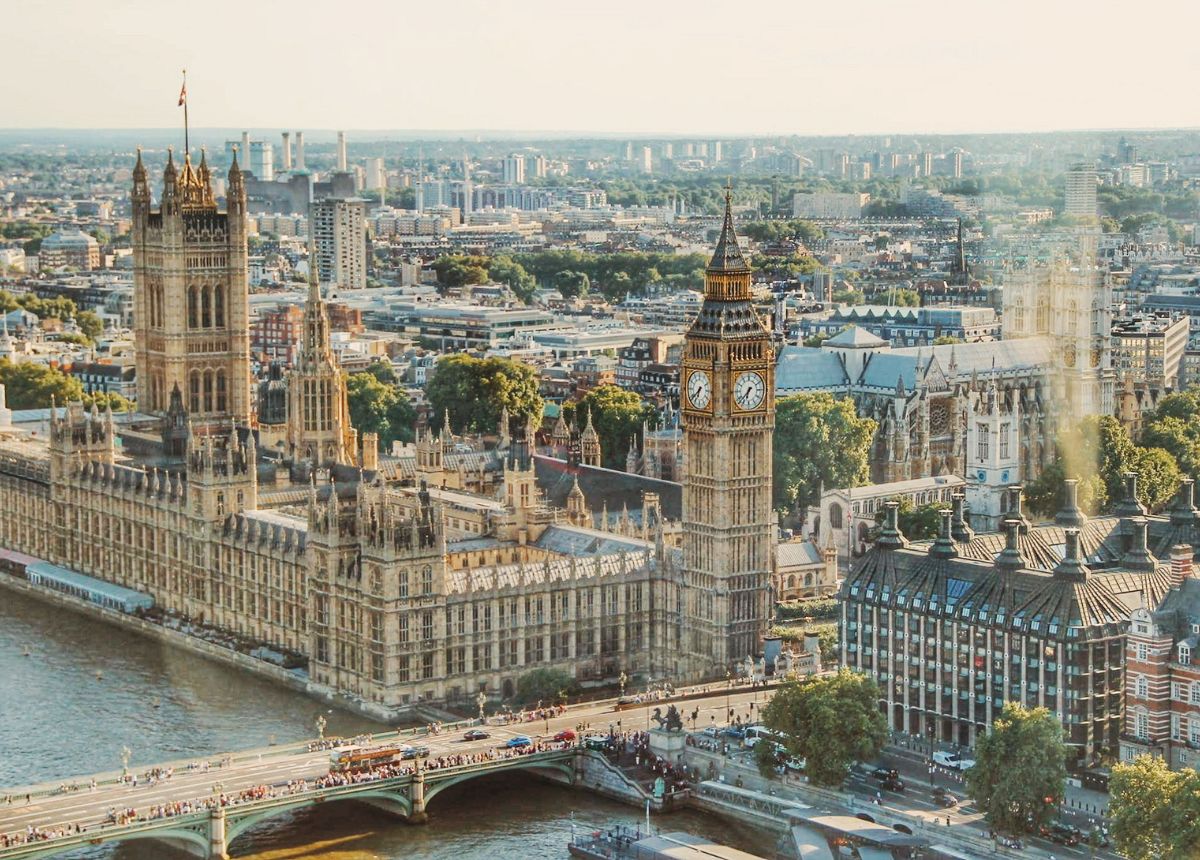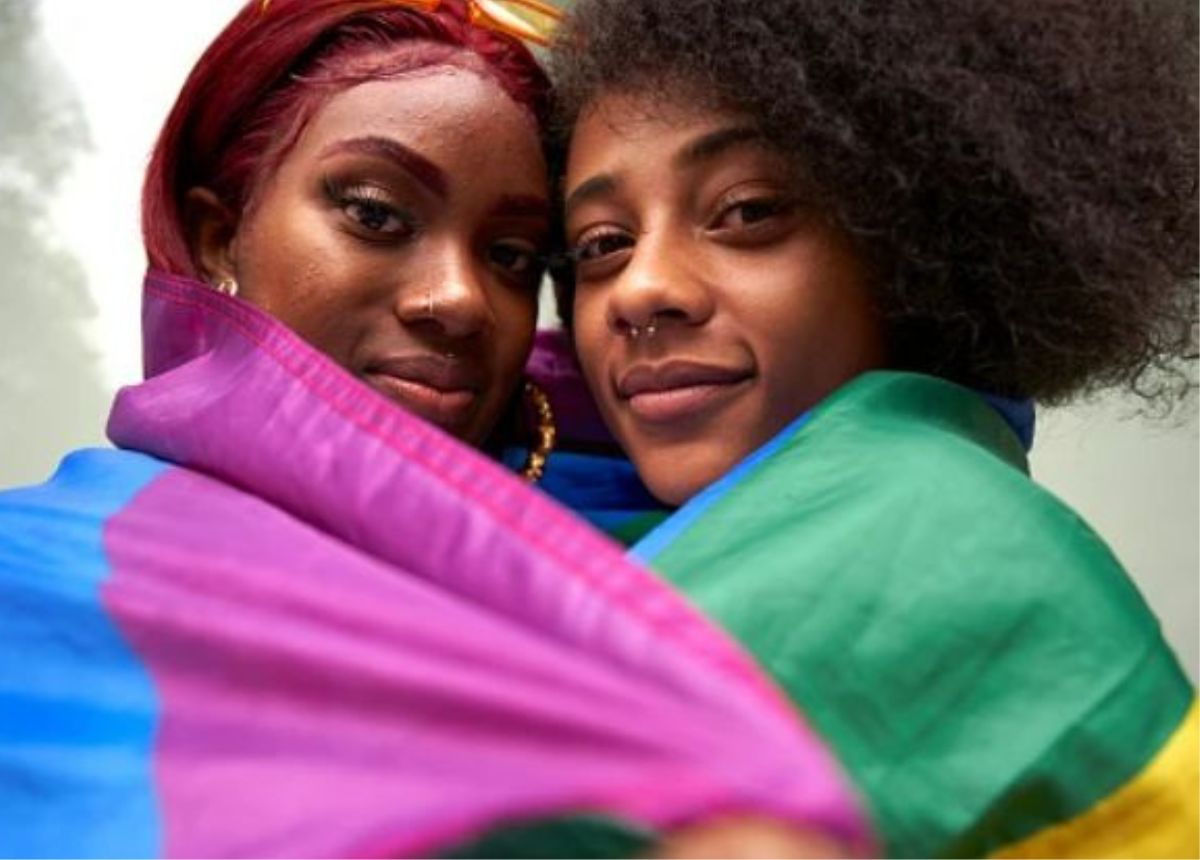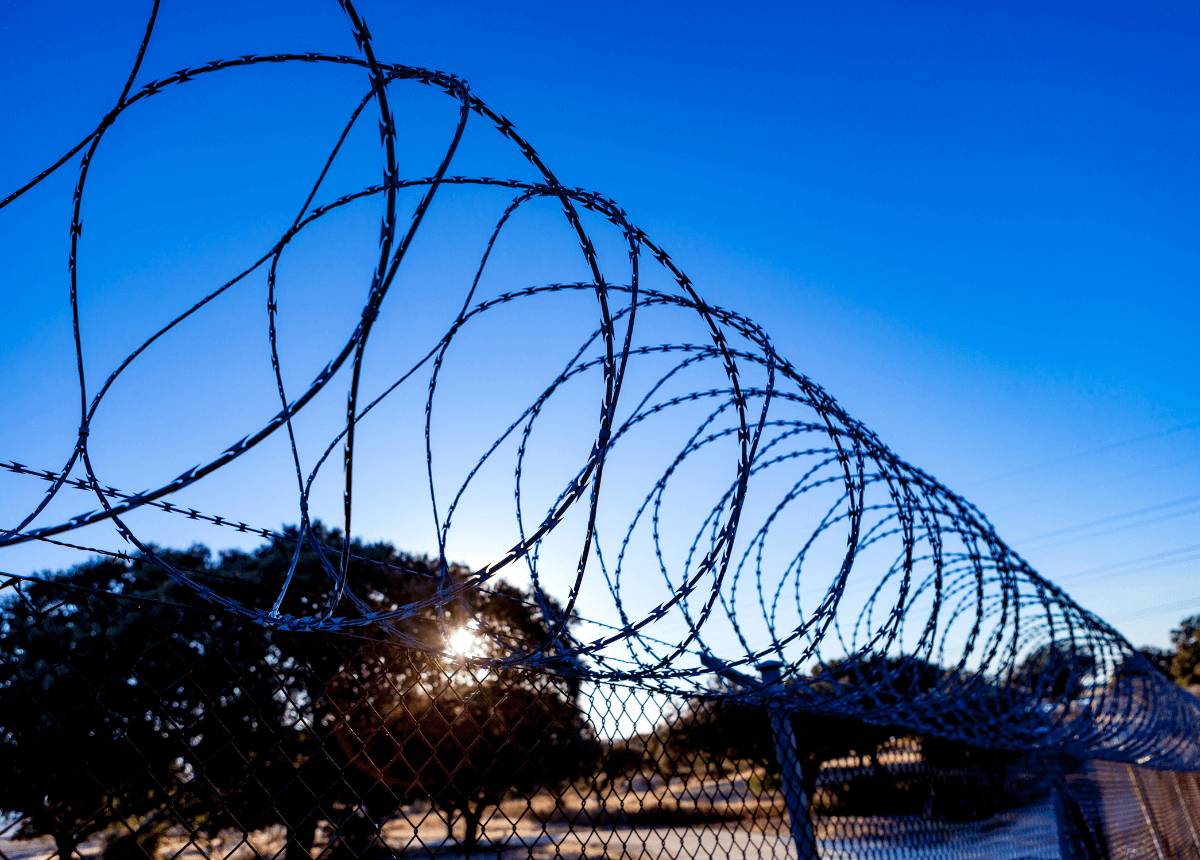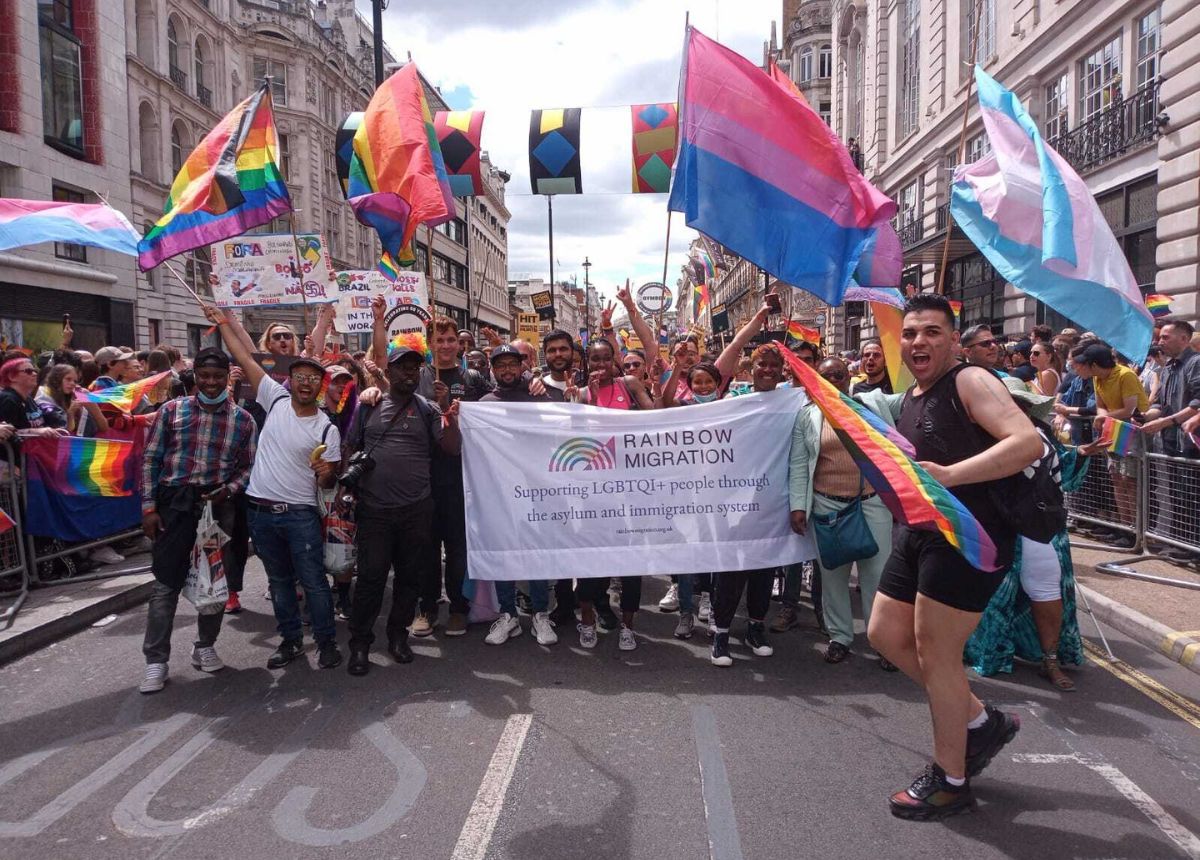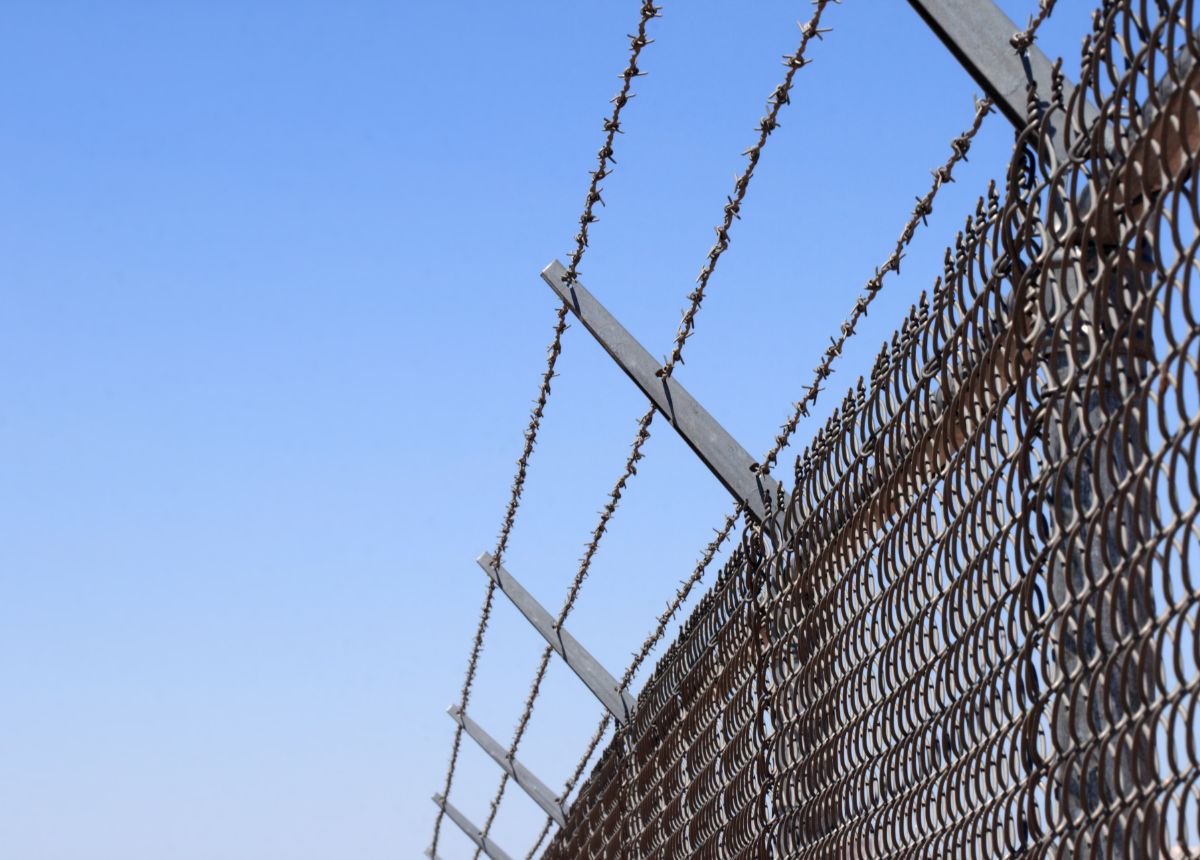MPs raise concerns about this government's plans to detain and send LGBTQI+ people to Rwanda
A new report on equality and the UK asylum process by the Women and Equalities Committee highlights that new legislation could put LGBTQI+ people seeking asylum at greater risk of harm.
Committee Chair, Caroline Nokes MP said: “We were disturbed by the Home Office’s inadequate management of risks of harm to asylum seekers with protected characteristics, including women, LGBT people, children and disabled people. Alarmingly, these risks will increase under the Government’s recent and planned reforms.”
Immigration detention and Rwanda
MPs are “deeply concerned that the current and planned reforms risk turning back the clock on policies intended to ensure detention is used only as a last resort, and to reduce the risks of harm to vulnerable people.” If the Refugee Ban Bill is passed into law, more people could be detained for longer periods of time. This would include LGBTQI+ people, who in detention face bullying, harassment and abuse, with serious consequences for their mental health.
The report recommends this government set out how it plans to mitigate the risks of harm to LGBTQI+ people in detention, and to collect and monitor data on where LGBTQI+ people are detained and for how long. At the moment, the government does not keep track of LGBTQI+ people in detention, which means that they cannot monitor and reduce the harm of detention to LGBTQI+ people.
MPs also expressed their worries about this government’s plans to send LGBTQI+ people to Rwanda and urged it to “set out how it intends to monitor and ensure those removed to Rwanda do not suffer harm or experience discrimination in that country”.
At Rainbow Migration, we have called out Rwanda as a country where LGBTQI+ people are subjected to discrimination, violence and abuse. The situation for LGBTQI+ people in Rwanda is so poor that it LGBTQI+ Rwandans have sought asylum in the UK.
“This report, for which Rainbow Migration gave oral and written evidence, is sending a very clear message to this government. The inhumane policies towards people seeking asylum in the UK have to stop immediately. This government’s legislation will put LGBTQI+ people seeking protection in dangerous situations, by detaining them in greater numbers and sending them to countries where they could face discrimination and violence”, said Leila Zadeh, Executive Director at Rainbow Migration, “instead, this government needs to focus on creating a compassionate and caring asylum system that treats people with kindness”.
Dangerous accommodation arrangements for LGBTQI+ people
The report also highlights that new contingency accommodation, such as military barracks and barges, being used by this government to house people wanting to rebuild their lives in the UK, is “unacceptable from both safeguarding and equalities perspective”, as it puts LGBTQI+ people at heightened risk of hate crime.
Leila Zadeh gave examples of the harassment and abuse experienced by LGBTQI+ people in government-provided accommodation. She explained that in the case of one man in military barracks, he was “ harassed by the others there, and there was no private space—the showers were communal, and they were sleeping in dorms, effectively. We worked very hard with other partner NGOs to try to get this person out but, to our knowledge, vulnerable people are being placed in accommodation like barracks and other forms of contingency accommodation which are completely unsuitable.
It’s not too late for the Prime Minister to stop this. Add your name to show the Refugee Ban Bill does not represent us.
Understanding immigration detention - part 2
This is the second of a two-part blog answering some of the most frequently asked questions we get on social media about our No Pride in Detention campaign.
How many people in immigration detention are LGBTQI+?
We cannot be sure of how many LGBTQI+ people are in detention, because this government does not collect or monitor the data.
The Home Affairs Select Committee has criticised the government for not collecting data on this, as it makes it impossible to accurately identify how many LGBTQI+ people are being detained.
What we do know is that even one LGBTQI+ person being locked up for months on end and subjected to bullying, is one too many.
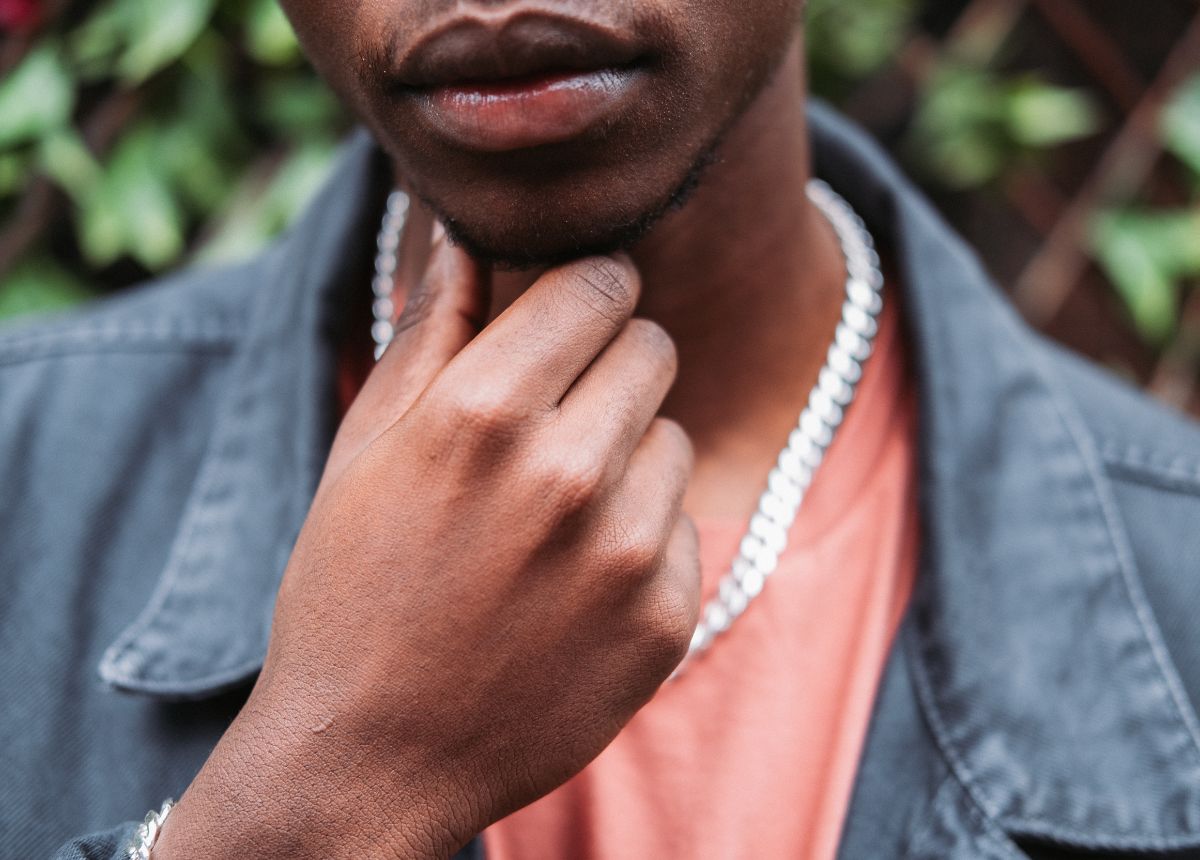
Is there anything official, or any studies, which prove that LGBTQI+ people face violence in detention centres?
Together with Stonewall, we published No Safe Refuge in 2016. The report highlighted the systemic discrimination, abuse and harassment that LGBTQI+ people seeking asylum faced both by staff and other people detained. The findings were stark – they faced physical and verbal abuse, deteriorating mental health, inadequate medical care and discriminatory attitudes from staff.
Earlier this year, the University of Brighton published a pilot study that found that UK detention centres continue to be very dangerous places for LGBTQI+ people, with participants reporting attacks from other detained people and inaction from staff in the face of escalating abuse.
On top of the UK evidence, similar conclusions have been reached internationally. The International Detention Coalition published a report in June 2016 reiterating that marginalised individuals should never be placed in immigration detention. Their report found that “LGBTQI+ persons face heightened levels of harassment, discrimination, psychological abuse, physical and sexual violence by detention staff as well as other detainees. They are frequently segregated in conditions falling below those of the general detainee population and well-established international standards, or are subjected to policies of solitary confinement, which have been shown to have severe mental and physical health consequences. Almost universally, LGBTQI+ people in detention are in situations of extreme vulnerability”.
And in its detention guidelines, the UNHCR (the UN agency responsible for monitoring and protecting refugees) warns that measures must be taken to avoid exposing LGBTQI+ people to the risk of violence or abuse in detention. Where their safety cannot be ensured, alternatives to detention must be considered. The guidelines suggest that LGBTQI+ people should never be kept in isolation or confinement, that all detention staff should be aware and trained in issues relating to LGBTQI+ people, and that LGBTQI+ people should have access to appropriate healthcare and counselling.
What would a victory look like for you and your campaign?
A win would mean lesbian, gay, bisexual and queer people are included in the Adults at Risk Policy. We also need to see improvements to that policy, to ensure that those at risk of harm are correctly identified and excluded from detention.
Ending the detention of LGBTQI+ people who are fleeing persecution in their home countries would help keep them safer in the UK. No-one should be locked away as punishment for seeking safety. Supporting people in the community would give LGBTQI+ people the chance to live with dignity and to be open about who they are while they pursue permission to stay in the UK. It would give them a better chance to gather evidence and find appropriate legal representation for their claims.
We also want the government to set a time limit of 28 days on all detention, to limit the harms that it is causing to everyone affected – not just the LGBTQI+ community.
These wins would be the start of a much-needed overhaul of the UK’s asylum and detention system. We hope it would lead on to meaningful investment in alternatives to detention, declining numbers being detained, and ultimately the end of the use of immigration detention in the UK.
Was this blog helpful? If so, you can read the first part of the blog. And if you want to take action, you can ask your MP to oppose LGBTQI+ detention.
New campaign to stop the Refugee Ban Bill
**This campaign has now closed, thanks for your support**
Together with Just Right Scotland, Liberty, NACCOM, Praxis, Rene Cassin and Women for Refugee Women we have launched a petition demanding the Prime Minister abandon his cruel and unworkable Refugee Ban Bill.
If the Refugee Ban Bill becomes law, LGBTQI+ people who come here seeking asylum will almost certainly be detained. In immigration detention LGBTQI+ people face bullying, harassment and abuse with serious consequences for their mental health. Following detention they could be sent to countries that are dangerous for LGBTQI+ people and where they don’t have any connections or support. Places like Rwanda, where LGBTQI+ people face discrimination and violence.
It’s not too late for the Prime Minister to stop this – add your name to show these cruel plans do not represent us.
Understanding immigration detention
Immigration detention is a complex issue that does not always get the attention that a scandal on this scale deserves. As a result, many people are unaware of how it operates and who is affected. We often get asked what immigration detention is, why it is so dangerous for LGBTQI+ people, and how people can help. This is the first of a two-part blog answering some of the most frequently asked questions we get on social media about our No Pride in Detention campaign.
How many detention centres are there, and where are they?
There are currently seven immigration detention centres (officially known as immigration removal centres) in the UK:
-
- Brook House, Gatwick, London
- Colnbrook, Middlesex
- Derwentside, County Durham
- Dungavel House, South Lanarkshire, Scotland
- Harmondsworth, Middlesex
- Tinsley House, Gatwick, London
- Yarl’s Wood, Bedfordshire
But in 2022, this government announced plans to reopen two more centres: in Campsfield, in Oxfordshire, and Haslar in Gosport, Hampshire. This will allow the government to hold up to an extra thousand people in the immigration detention estate.
The government also operates a number of “short term holding facilities”. These are places to detain those who have just arrived in the UK for shorter periods of time while the Home Office assesses their case.
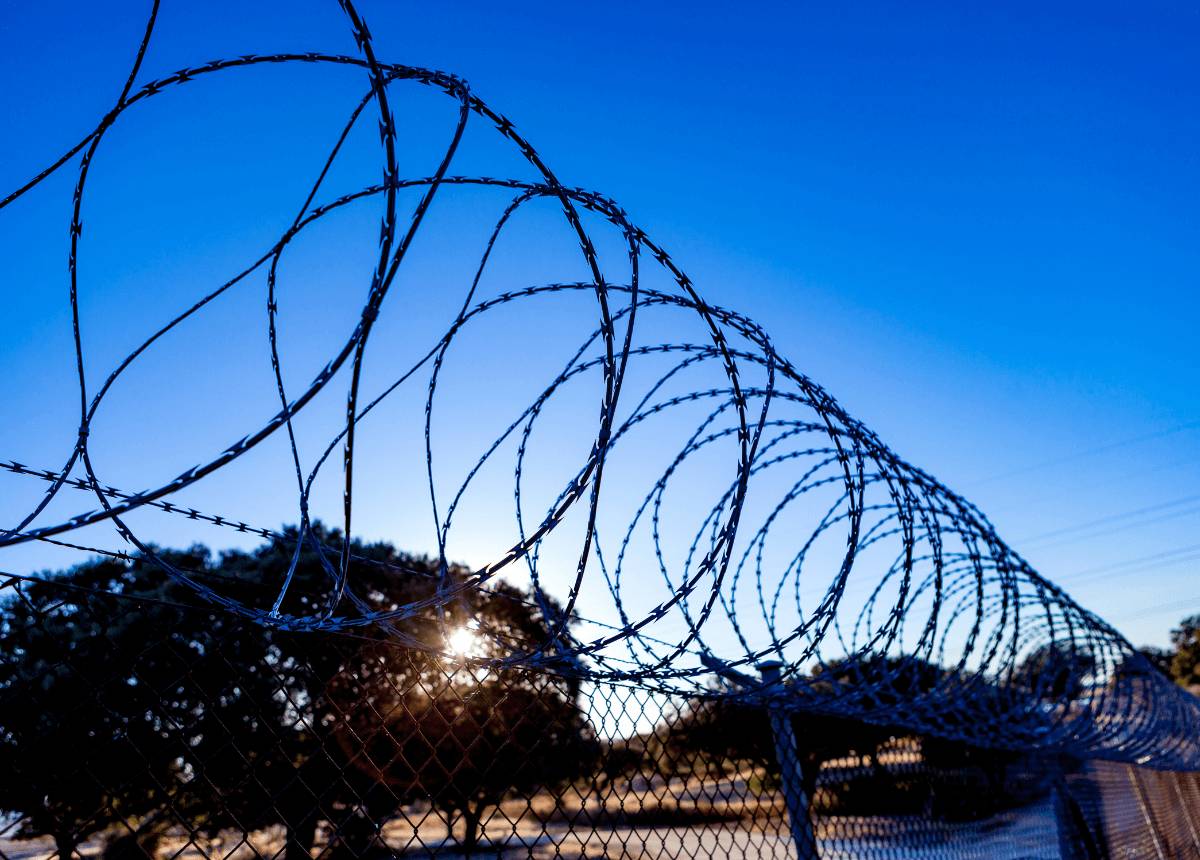
Would it be discriminatory to only keep LGBTQI+ people out of detention?
Like many other organisations and people in society, we think that detention is unjust and damaging to everyone. But evidence shows that LGBTQI+ people (alongside other groups like pregnant women and survivors of torture) are at even greater risk of harm when detained.
We want to see an end to detention in the UK, but while it remains a part of the UK immigration system, we want anyone at additional risk of harm to be kept out of it. The government already has a list of characteristics or experiences that may indicate a person is at greater risk of harm if detained, and that list already includes trans and intersex people. We want the whole LGBTQI+ community to be included in recognition of the risks they face.
There is evidence that LGBTQI+ people are particularly unsafe in detention and should not be detained. They experience bullying, harassment and abuse. This can be from members of staff or from other people who have been detained, who may hold the very same homophobic and transphobic attitudes that LGBTQI+ people seeking asylum are trying to flee.
The situation is urgent. If this government’s new Refugee Ban Bill becomes law, there will be a drastic increase in the number of people detained, as a punishment for seeking asylum. To protect the wellbeing of LGBTQI+ people who are seeking safety in the UK, it is vital to end LGBTQI+ detention.
What are the specific dangers that LGBTQI+ people face within detention?
In immigration detention, LGBTQI+ people face high levels of harassment, abuse and violence from others who are detained, or even staff, who ought to be protecting them. Staff in detention centres are supposed to keep people who are detained safe, yet many lack knowledge of LGBTQI+ specific needs, and might even have discriminatory views of their own.
In a recent pilot study, LGBTQI+ people in detention spoke about receiving verbal homophobic abuse from staff, and about staff failing to stop physical attacks from others in detention. Others who were interviewed did not report the LGBTQI-phobic abuse they had experienced as they did not feel they would be believed or supported by staff.
Facing abuse in detention can retraumatise LGBTQI+ people. In our No Safe Refuge study, Gasha from Cameroon said; “I got flashbacks of everything I’ve been through in Africa. I’ve been free for two or three years and then here I am back in a cell”.
If you don’t want immigration detention for LGBTQI+ people, what do you think about detention in general? Is there another or better way to deal with asylum claims, or people who might need to be removed?
Immigration detention is inhumane and expensive, causing long-term damage to the lives of those detained and tearing families apart. Although detention should normally only be used when someone is about to be removed from the UK, in the year ending September 2022, of the people leaving detention, 83% were released back into the community. Supporting people to get help with their immigration status while living in the community can help them to resolve their cases without the human and economic cost that detention brings.
At the moment, community-based case management approaches are being tested across Europe. The first project to report back in the UK found that providing vulnerable women who were seeking asylum with shared accommodation, intensive support and legal advice in the community:
-
- was significantly better for their health and wellbeing
- could cost half as much as keeping someone in detention, and
- did not decrease compliance with the immigration system
Although this government has officially accepted the recommendations from the evaluation of this pilot, instead of following the evidence they are increasing the use of detention.
With an expanding detention estate and new legislation that significantly extends the government’s powers to detain, we need to protect those most at risk more than ever.
If you want to take action, you can ask your MP to oppose LGBTQI+ detention. Or you can read the second part of the blog.
You are invited to our film screening in London
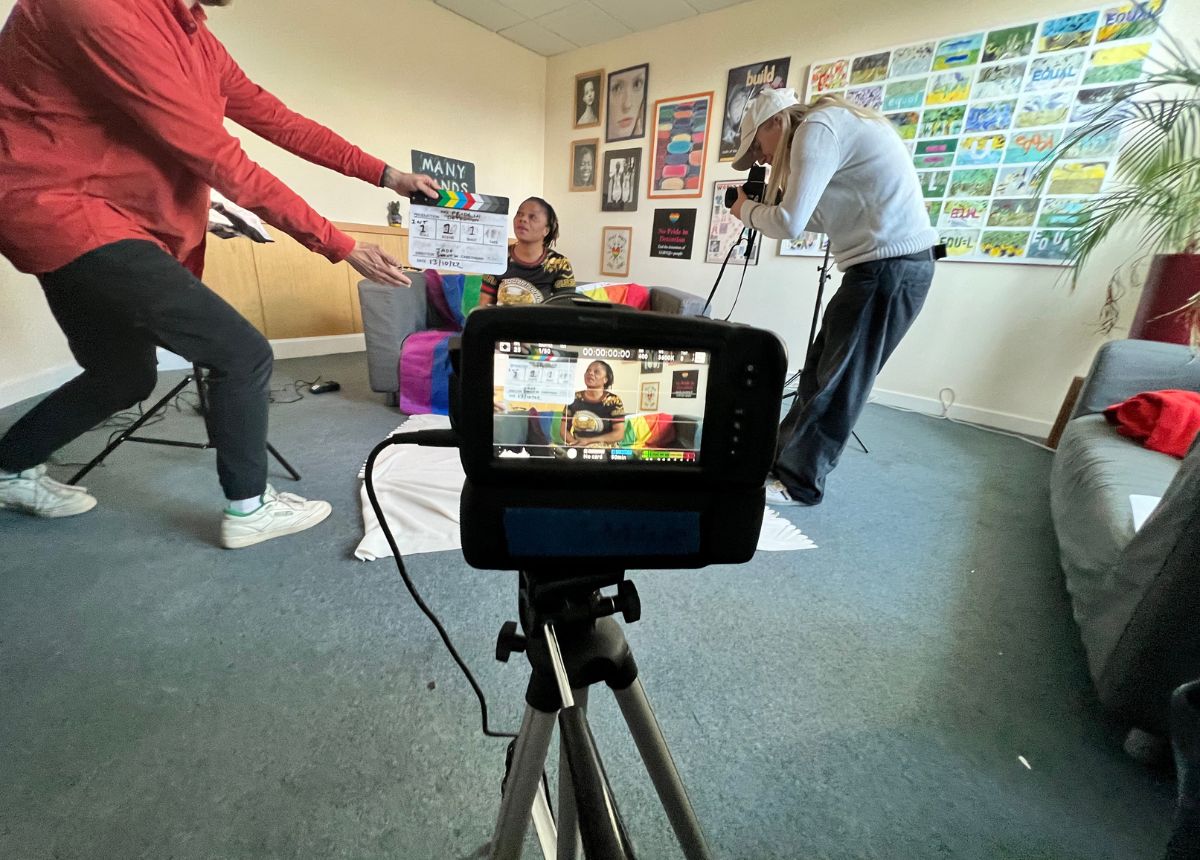
LGBTQI+ people come to the UK fleeing persecution. But instead of finding safety here, some are locked up in detention centres where they face LGBTQI-phobic bullying, harassment and abuse.
Join us for a short film screening, talk and Q&A on LGBTQI+ experiences of immigration detention. Hear from people with lived experience of detention and discuss how we can resist this unjust and inhumane practice in the UK.
There is #NoPrideInDetention.
When: Friday 10 March, 6-7:30pm
Where: London LGBTQ+ Community Centre
Podcast about No Pride in Detention
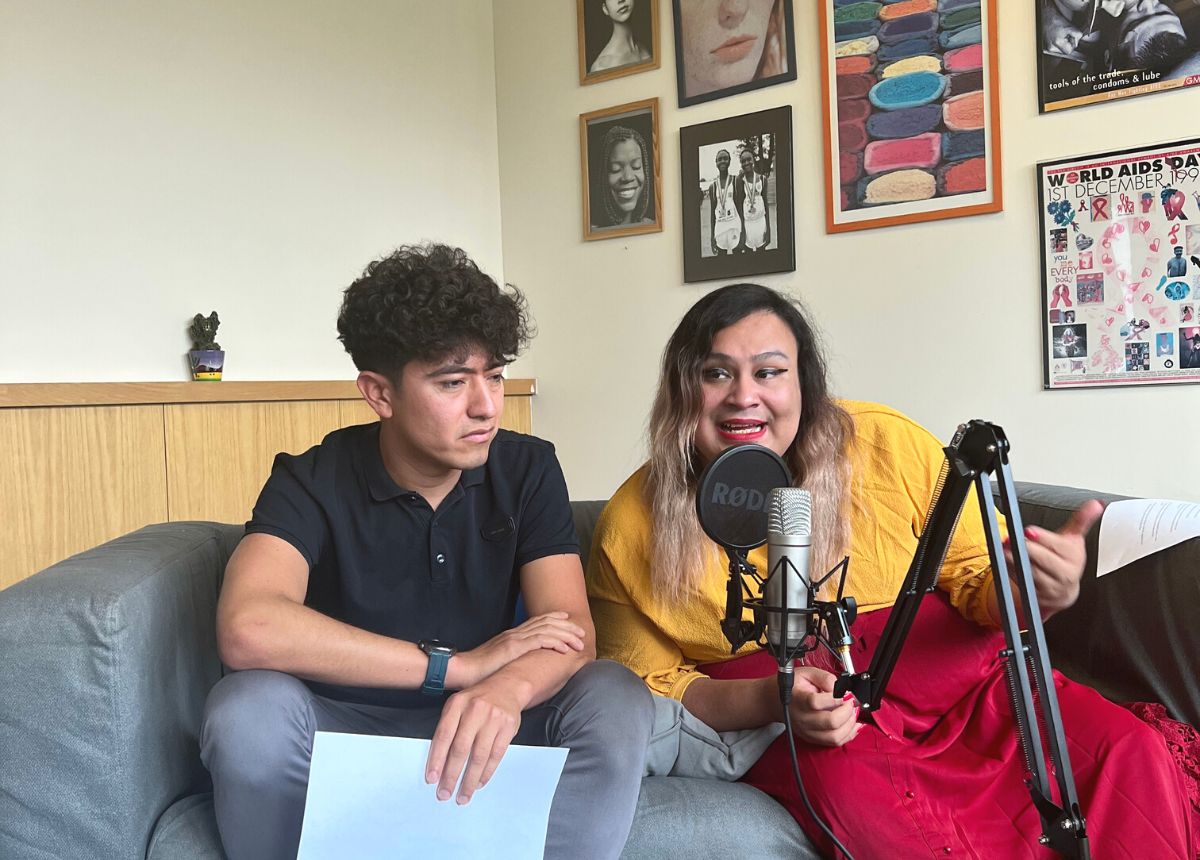
In this episode Mic Drop star Jared interviews Rainbow Migration’s Campaigns Manager Emma Webb about No Pride in Detention, our campaign that calls for an end to LGBTQI+ detention and a 28-day time limit for all immigration detention.
Emma and Jared talk us through what exactly detention is, how this system works and the specific dangers it poses to LGBTQI+ people.
Content warning: This episode discusses detention experiences, structural violence, homophobia and transphobia.
Support resources:
The Right to Remain toolkit section on immigration detention
The Right to Remain zine for people at risk of detention and their supporters
Bail for Immigration Detainees (BID)’s self-help guide on how to get out of detention
More about the Mic Drop
The Mic Drop is a collaborative podcast made by members of Many Hands One Heart and Larry Achiampong. Across the episodes The Mic Drop will detail a range of subject matter from personal experiences relating to seeking asylum whilst being LGBTIQ+ through to critical conversations relating to the arts and culture.
Many Hands One Heart is a support and wellbeing project for people from the LGBTQI+ community who are seeking asylum in Liverpool.
LGBTQI+ people still at serious risk of harm in immigration detention
A new pilot study into LGBTQI+ experiences of immigration detention since September 2016 indicates that LGBTQI+ people continue to face harassment, bullying and deteriorating mental health while in immigration detention.
The study, conducted by Dr Laura Harvey at the University of Brighton and supported by Rainbow Migration, looks at the experiences in detention of five members of the LGBTQI+ community – three gay men and two non-binary people. Four of the participants were held in Immigration Removal Centres for several months, and one in a Short-Term Holding Facility for 48 hours.
Key findings – LGBTQI+ people not safe in immigration detention
Participants in the research experienced verbal and physical homophobic abuse from other people held in detention, including from individuals they were forced to share locked rooms with at night. Usman* described how he reported someone who “spat on my face for being a gay”, but was still made to share a room with this person until they attacked him physically.
As a result of this violence and intimidation, participants feared being ‘out’ while in detention and felt a need to hide their sexual orientation or gender identity. However, they were not always able to do this despite trying to, so they remained exposed to the risk of bullying and abuse. Johnson* said: “I don’t want to hide my sexuality here but I didn’t tell anyone because I was so scared.”
Although some participants found staff to be a source of help and support, others reported problems including verbal homophobic abuse from staff, being afraid to report homophobic bullying to staff, inaction from staff in the face of escalating homophobic bullying and misgendering by staff.
Overall, participants experienced worsening mental health and delayed access to mental health support while in detention, as well as being put in situations that resembled past traumatic experiences.
Johnson* had suffered violent homophobic attacks in their home country – including one in which their partner was killed – and was identified by a GP in detention as needing mental health support. However they waited three months to be seen by a psychiatrist, during which time they had to share a locked room with someone who was openly homophobic towards them.
Ending LGBTQI+ detention remains as urgent as ever
The research aimed to explore whether experiences of LGBTQI+ people in detention had changed significantly since the last piece of research on this topic in 2016 and after the introduction of the Adults at Risk in Immigration Detention policy that same year, which recognised the heightened risk of harm to trans and intersex people in detention.
According to the findings, LGBTQI+ people still face considerable and ongoing risk of harm in immigration detention in the UK. The data suggest that detention centres are inherently risky for LGBTQI+ people, who are trapped in a space that they cannot leave, in which abuse and harassment are difficult to escape.
With the government now increasing its use of immigration detention it is crucial they recognise that people who cannot be kept safe from harm in detention should never be placed there. That applies to all members of the LGBTQI+ community.
If you agree please email your MP to ask if they oppose LGBTQI+ detention and let us know their response.
* All names used for participants are pseudonyms to protect their anonymity.
For more information about the pilot study please see the research report or summary of key findings.
Join our campaigns advisory group!
***This opportunity has now closed***
Would you like to get involved in campaigning against immigration detention?
Our No Pride In Detention campaign is steered by a group of LGBTQI+ people with lived experience of the UK asylum system. We have been working together for the past year to develop and launch the campaign, and have secured the support of over 4,000 people and 19 organisations for an end to the detention of LGBTQI+ people.
We are now opening up the group to new members for 2023, so read on to find out how you can get involved.
Who can join?
- Are you LGBTQI+ (lesbian, gay, bisexual, trans, queer and/or intersex)?
- Have you been through the UK asylum system and/or been held in UK immigration detention, and been granted leave to remain?
- Are you passionate about improving our asylum and detention system to help LGBTQI+ people fleeing persecution?
If your answer to the above questions is yes and you are willing to volunteer your time with us, we would love to hear from you. We especially encourage applications from people who have experienced immigration detention as this is the focus of our current campaign.
No previous experience of campaigning is needed – your life experience and passion are more important than work history, and our staff will support you to develop any skills you need.
What will it involve?
You will help to steer, deliver and evaluate our No Pride In Detention campaign, attending online planning meetings with other group members roughly every other month. You will also have the option to attend other campaign events and activities, but anything beyond the regular meetings is optional. Find out more in the Role Description or check out our Campaigns Advisory Group page for more information on current members and activities.
What support are we offering?
This is a voluntary position but we will cover any pre-agreed expenses needed to enable you to take part (e.g. travel, mobile top-ups, childcare). We ask that you tell us what you hope to get out of joining the group so that we can support you to achieve that goal, as well as helping you to develop any knowledge or skills you will need for the role.
How to apply
You can apply online or download an application form to complete and email to us. If you need to apply in a different format (e.g. by sending us a video) or if it would prove difficult to complete the form, just let us know and we’ll try to arrange something that works for you. The deadline is Sunday 26 February but we encourage early applications.
If you have any questions or would like to have an informal chat with our Campaigns Manager or a current member of the group before applying, please email us to arrange this.
"It is a way of getting my voice heard in cases where it normally wouldn’t be heard"
We work with a ‘Campaigns Advisory Group’ made up of LGBTQI+ people with lived experience of the UK asylum system to steer our public campaigning. The group meets regularly with staff to plan, deliver and evaluate activities for our No Pride In Detention campaign. Vanessa, one of the current members, told us her thoughts on being part of this group.
“I came across the advisory role from a friend who knows how passionate I am about the rights of LGBTQ+ people seeking asylum and refugees.
At first I was hesitant because I am a bit anxious but I went for it.
I remember the interview with Emma and Carla, it was very informal and I was literally on a coach to Manchester.
Talking to Emma about my expected commitment got me very excited and I looked forward to joining the advisory team.
I remember receiving the email that I was successful and feeling hopeful for the future and participating in influencing decisions.
It has been a very good experience, I have learnt so much about the refugee system, apart from experiencing the asylum system, from the research and reports that have been conducted I have walked in the shoes of others.”
It is a way of getting my voice heard in cases where it normally wouldn’t be heard.
The best part about this is being able to influence decisions, coming up with ideas for campaigns, participating in events.
It is a way of getting my voice heard in cases where it normally wouldn’t be heard.
I had heard about detention centres but never heard stories from LGBTQ+ people who had actually stayed in detention centres. Being in the advisory group has opened my eyes to the struggles and has also created the passion to lend my voice and words against detention.
Imagine leaving a country that restricts your rights and freedom and then getting into a prison like environment, it can be devastating.
So whether it is silently lending your voice, participating in campaigns and researches, if you are passionate about helping people then this is the right place.”
To learn more about Rainbow Migration’s Campaigns Advisory Group and how you can get involved, please see the role description and application form.
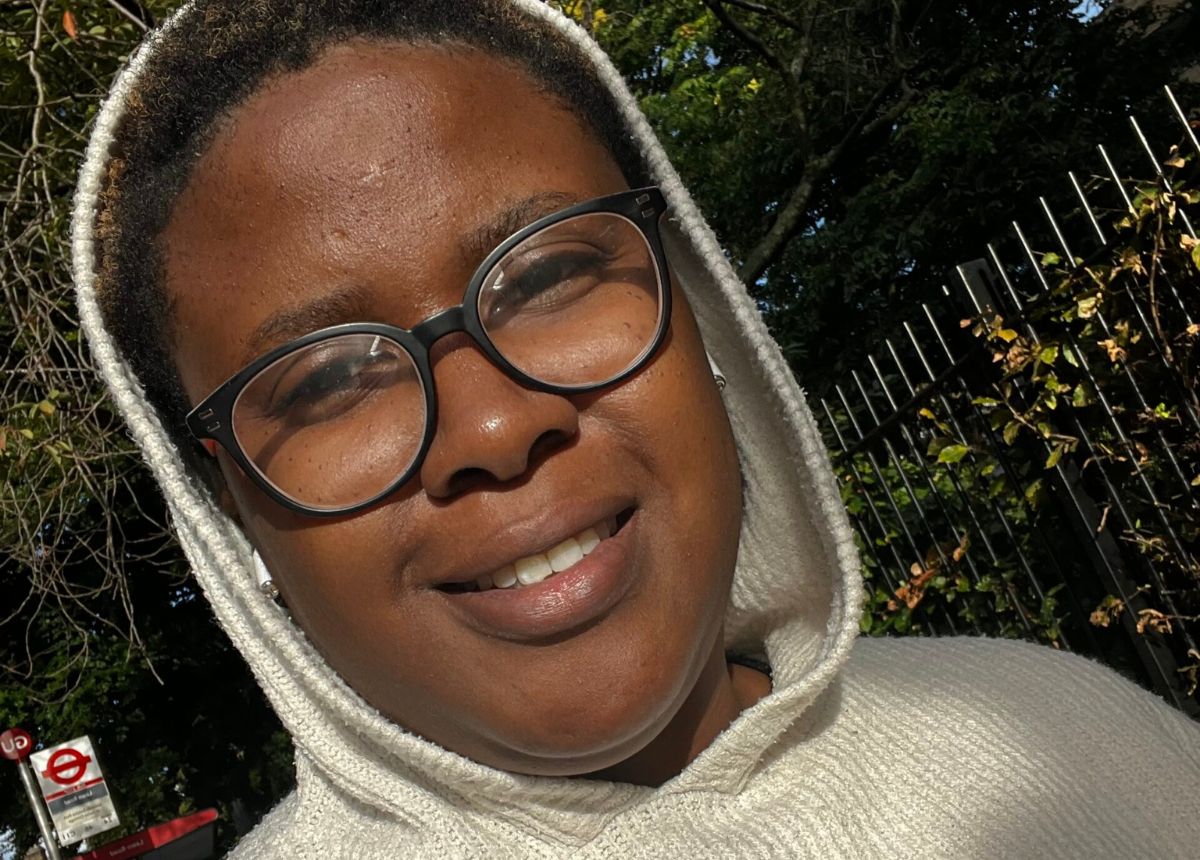
Less scrutiny means more risk for LGBTQI+ people in detention
This Government has stopped commissioning the annual independent reviews into the treatment of vulnerable adults in immigration detention. If there is no one that keeps an eye on the conditions in detention, LGBTQI+ people could be put at risk of more harm.
Last week, the Independent Chief Inspector of Borders and Immigration (ICIBI), David Neal, and the former Prisons and Probation Ombudsman, Stephen Shaw CBE, reported that this Government was ending their annual independent investigations into the treatment of vulnerable adults in detention.
What is the Adults at Risk policy and how long has it been independently reviewed?
The Adults at Risk policy (AaR) recognises that certain groups of people may be “particularly vulnerable to harm in detention” and creates a presumption that these groups should not be detained. The AaR includes trans and intersex people and our ‘No Pride in Detention’ campaign is calling for lesbians, gay and bisexual people to also be included in this policy, as there is evidence that they also experience homophobic bullying, harassment and abuse when locked up.
The ICIBI carries out reviews on the effectiveness of the Home Office’s practices and policies towards adults at risk in immigration detention since 2015 and makes recommendations to improve the conditions of detention. But as the ICIBI notes, “though many recommendations arising from our reviews and inspections have been accepted, progress in implementing them has been painfully slow”.
For instance, in 2019, In his report on the Adults at Risk annual inspection, the ICIBI commented upon the fact that the Home Office does not collect data on the number of LGBTQI+ people who are detained, and therefore it was “hard to see how the Home Office is able to assess the quality of its decisions to detain or the impacts of detention on specific group”. This is a recommendation that has not been implemented yet.
Latest ICIBI report released
The news about the end of these reviews comes as the last annual report has just been released, in which the Inspectorate reports that “officers in both Yarl’s Wood and Harmondsworth [detention centres] told inspectors that being under-resourced and carrying vacancies was negatively affecting the delivery of their required engagement activity”, with delays of “up to a month”. The “engagement activity” includes inductions for new arrivals to detention, in which LGBTQI+ people have the opportunity to raise their sexual orientation and/or gender identity with officials. If people don’t have the opportunity to raise that they are LGBTQI+ when they enter the detention centre, it can be more difficult to raise this at a later stage, and people may not be made aware of policies that are in place to protect them from bullying, discrimination and abuse.
With these inspections coming to an end, the Home Office will face less pressure to comply with the policy and improve conditions in detention for adults at risk, including LGBTQI+ people.
The Government has said it plans to “take the welfare of detained individuals extremely seriously”, but at Rainbow Migration we find it hard to understand how they are going to achieve that while dismantling the independent scrutiny mechanisms in place.
Immigration detention is not safe for anyone. Being detained puts many people who are often already traumatised, at even greater risk of poor mental health and suicide. This is especially true for LGBTQI+ people.
Instead of trying to end the annual reviews on the adults at risk policy’s effectiveness, this Government should put an end to the detention of LGBTQI+ people and set a time limit on all immigration detention.
There is #NoPrideInDetention.

